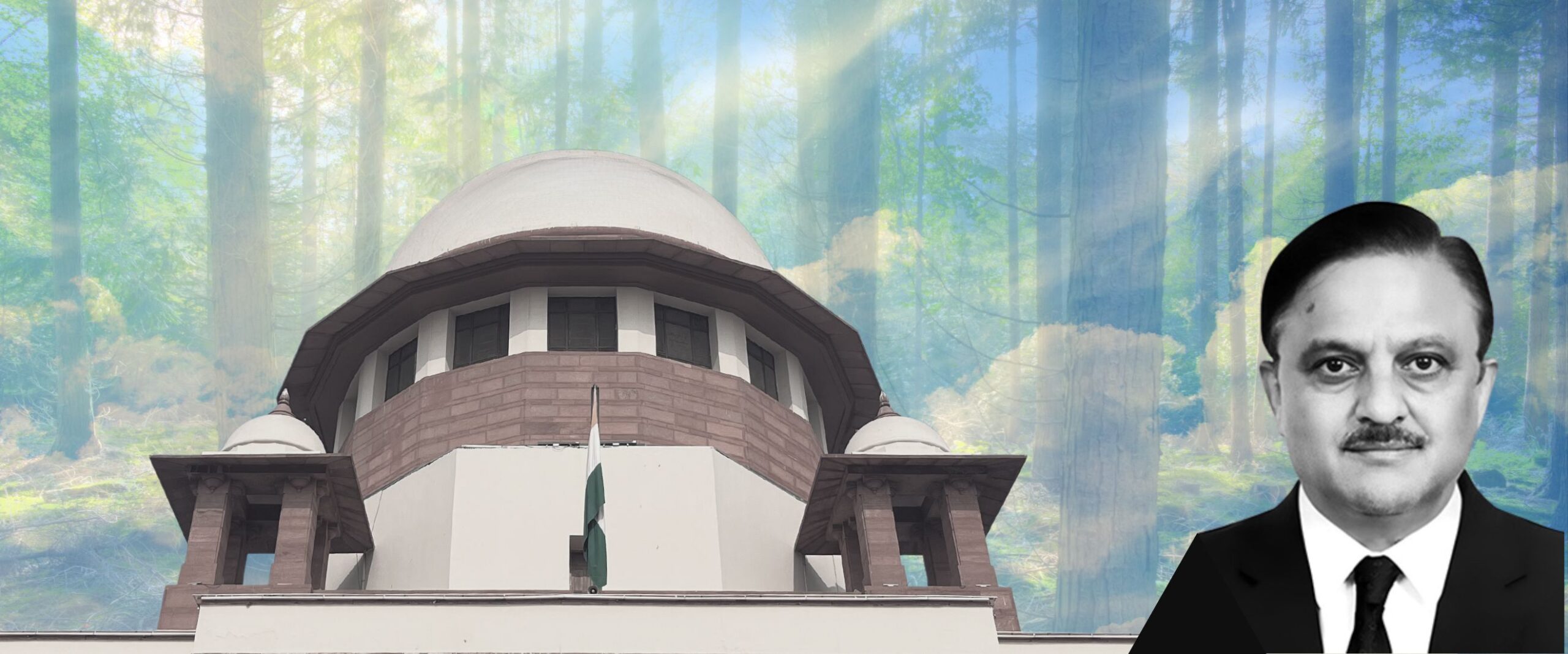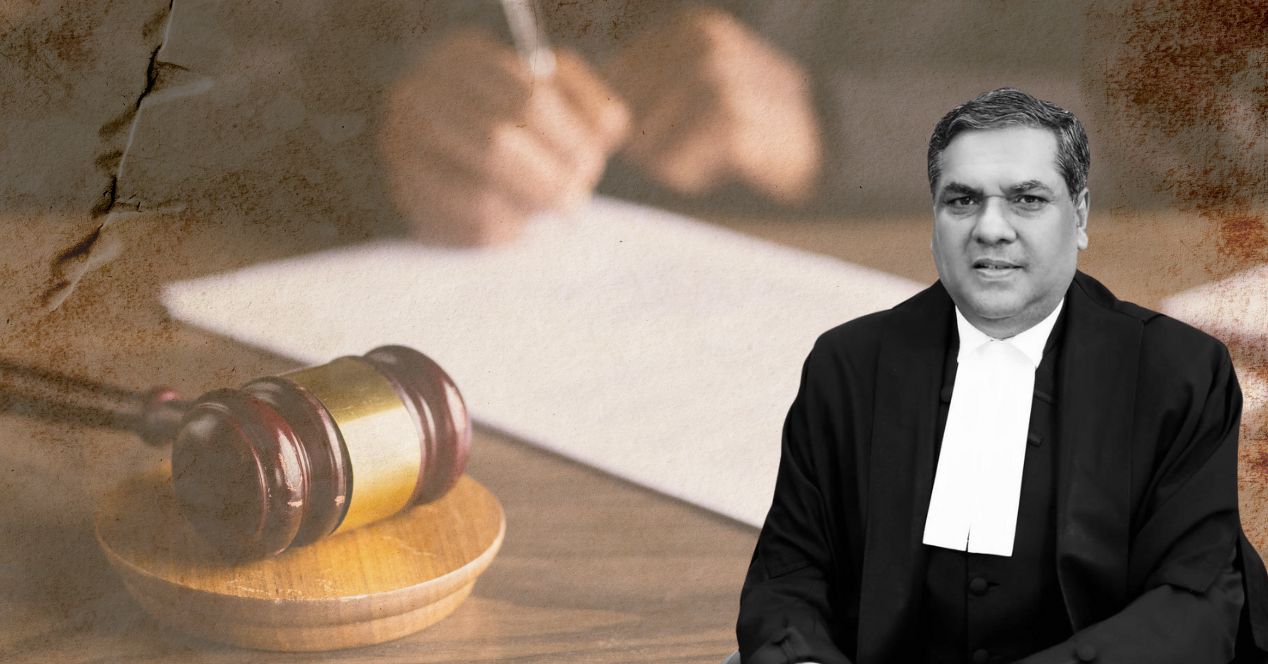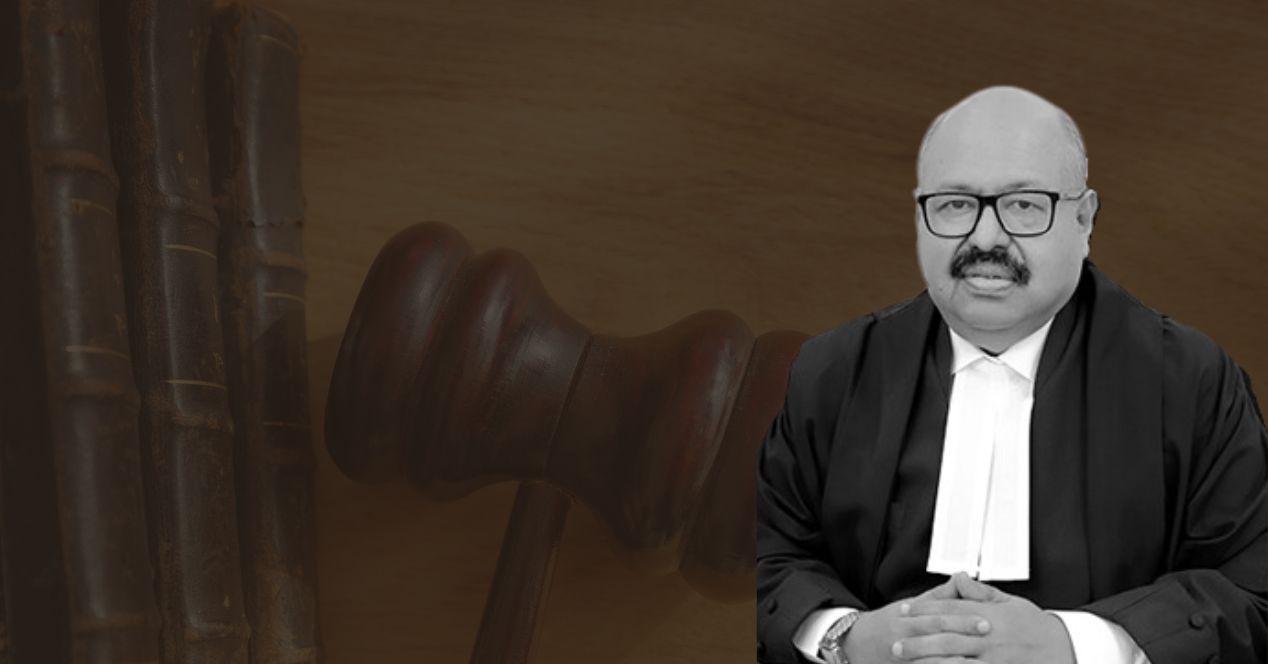Analysis
Justice A.S. Oka’s Notable Judgements
During his farewell, the CJI reflected on Justice Oka’s enduring commitment to free expression, procedural fairness, and labour rights

On 24 May 2025, Justice A.S. Oka retired from the Supreme Court after nearly four years on the bench. During this time, he authored 383 judgements and served on 594 benches*.
In his judicial career spanning over four decades, he was known for pragmatic and purposive judicial reasoning which prioritised individual liberty, institutional accountability and procedural fairness.
On the day of his Ceremonial Bench, Chief Justice B.R. Gavai had nothing but praise for Justice Oka. “Whether it was in the domain of environmental protection, in holding government accountable to the people they serve, in safeguarding the freedom of expression even when the voices were inconvenient or unpopular, or in upholding the dignity of labour and the rights of the most marginalised, Justice Oka’s decisions have consistently reaffirmed the core values enshrined in our Constitution,” he said.
In this article, we list Justice Oka’s notable judgements which found resonance in CJI Gavai’s tribute.
Prioritising procedural safeguards over ED’s power to arrest
In Tarsem Lal v Directorate of Enforcement, Jalandhar Zonal Office (2024), a two-judge Bench of Justice Oka and Ujjal Bhuyan held that the Enforcement Directorate (ED) cannot arrest a person under the Prevention of Money Laundering Act, 2002 (PMLA) after a Special Court has taken cognisance of the case. The Judgement, authored by Justice Oka, is regarded as a landmark PMLA decision as financial crimes under the statute often raise critical concerns of personal liberty and due process.
A Special Court had summoned Tarsem Lal after the ED registered a money laundering case against him. Lal was not arrested at that time. After failing to appear, the Court issued a warrant. Lal’s anticipatory bail plea was dismissed by the Special Court and the Punjab and Haryana High Court.
Justice Oka, in the 37-page Judgment, granted Lal conditional protection from arrest and warned against the issuance of non-bailable warrants. “The object of issuing a summons is to secure the accused’s presence before the Court. It is not issued for taking an accused in custody,” he observed. The Judgement emphasised a judicial check on law enforcement powers, holding that, as a “normal rule,” a Court cannot issue a warrant if a summons has been issued to the accused.
“Litigants can not suffer due to fault of the Court”
In High Court Bar Association Allahabad v The State of Uttar Pradesh (2024), a five-judge bench held that a stay order granted in civil and criminal cases will remain in operation till the case reaches finality. It can only lapse if it is expressly time-bound.
Authoring the Judgement, Justice Oka overruled Asian Resurfacing of Road Agency Private Limited v CBI (2018). In that case, a three-judge bench held that a stay order would automatically lapse after six months unless extended by a speaking order.
Justice Oka held that the stay orders are based on deliberation and arguments. An order cannot be vacated “without giving sufficient opportunity of being heard” to the party in whose favour the stay order was issued. Moreover, a stay order cannot lapse if a High Court was unable to hear the main case. Emphasising the Court’s responsibility to resolve delays, he declared that “no litigant should be allowed to suffer due to the fault of the Court.”
Giving Anganwadi workers their due
A Division Bench, in Maniben Maganbhai Bhariya v District Development Officer Dahod (2022), ruled that Anganwadi workers (AWWs) were entitled to the benefits under the Payment of Gratuity Act, 1972. The decision was a major victory for the nationwide movement of AWWs.
Writing separate but concurrent opinions, Justices Ajay Rastogi and Oka agreed that AWWs provide essential frontline services such as food security, pre-school education and pandemic management. The Bench rejected the ‘specious’ classification of AWWs as ‘part-time volunteers,’ observing that this categorisation deprives them of a regular salary and other benefits that are available to State employees.
Justice Oka’s opinion observed that it was “impossible” to accept that the nature of duties assigned to AWWs can be a part-time job. He noted that AWWs were being paid a “very meagre remuneration and paltry benefits”. The Court directed the Union Government to revise its service terms, including a proper salary no less than the minimum wage.
“Every citizen has the right to offer criticism”
In Javed Ahmad Hajam v The State Of Maharashtra (2024), Justice Oka authored a Judgement which quashed an FIR registered against a Kashmiri professor who was accused of ‘promoting enmity between groups’ under Section 153-A of the Indian Penal Code, 1860. The professor had posted text messages and status updates on the platform WhatsApp expressing unhappiness with the abrogation of Article 370.
Justice Oka observed that the intervention of the law in free speech cases is only required when written or spoken words tend to create public disorder or affect social tranquillity. He emphasised that the accused had a right to legitimate, lawful dissent under Article 19(1)(a). Judging from the standard of a reasonable man as opposed to a ‘weak and vacillating mind,’ the Court held that statements were not a ploy to promote inter-group enmity.
“Every citizen has the right to offer criticism of the action of abrogation of Article 370 or, for that matter, every decision of the State,” he wrote. “If every criticism or protest of the actions of the State is to be held as an offence under Section 153-A, democracy, which is an essential feature of the Constitution of India, will not survive.”
Distinction between supporting and furthering banned organisations
In Thwaha Fasal v Union of India (2021), a Division bench of Justices Rastogi and Oka granted bail to two persons booked under the Unlawful Activities (Prevention) Act, 1967 (UAPA) for alleged links with the banned organisation, Communist Party of India (Maoist). The Judgement drew a crucial legal distinction between associating with a terrorist organisation and associating with an intention to further the activities of a terrorist organisation.
A Sub-Inspector found the accused “standing in suspicious circumstances” and apprehended him. Their belongings were seized, revealing protest posters and pamphlets, books like ‘Caste issues in India’ published by the Central Committee of CPI (Maoist), notebooks recording meeting minutes and so on. An FIR was registered under Sections 38 (criminalising membership of a terrorist organisation) and 39 (criminalises actions taken with the intention of furthering the activities of a terrorist organisation).
Writing the majority opinion, Justice Oka observed that there should be an intention to further the activities of a terrorist organisation. Therefore, a “mere association” was found to be insufficient to attract an offence under Sections 38 and 39. The Court held that there was no prima facie case against the accused and granted bail on the grounds that they did not actively further unlawful activities.
*This data was collected from Manupatra on 28 May 2025




